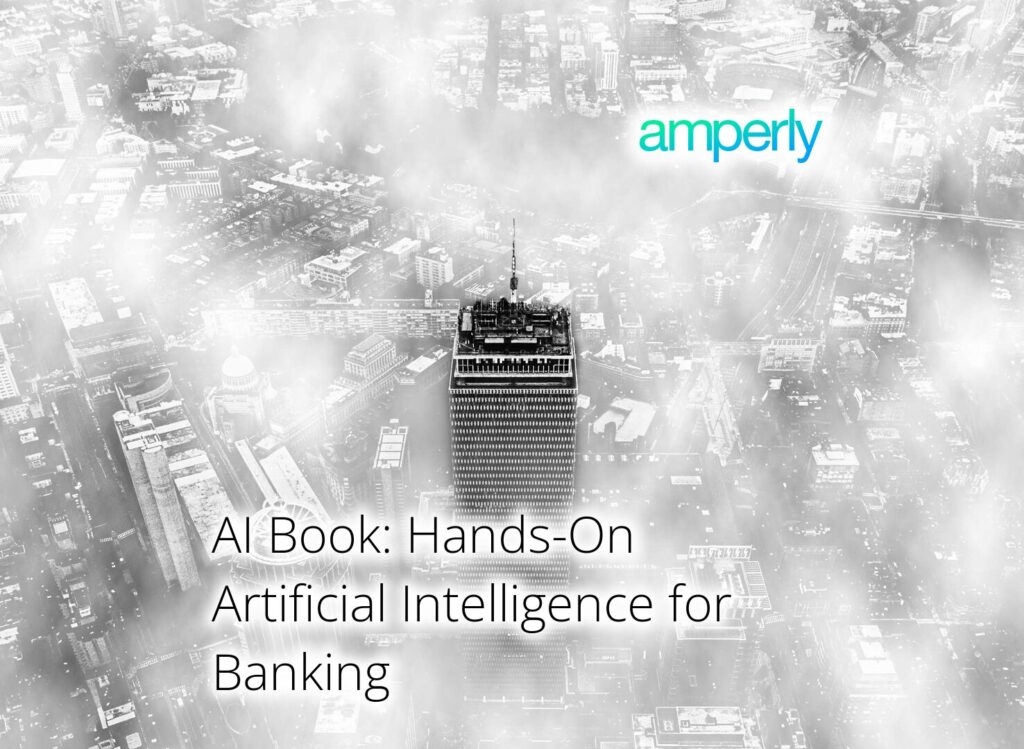Artificial intelligence in fraud detection is transforming how you protect your bank and customers. With advanced algorithms and real-time monitoring, AI enhances your ability to spot fraudulent transactions before they impact anyone. Are you ready to discover the tools and strategies that can elevate your fraud detection efforts to the next level?

You’ll find more strategies on AI applications in banking here applications of AI in banking. You can learn more about how AI helps in detecting fraud here artificial intelligence in fraud detection.
AI Algorithms for Fraud Detection
AI Algorithms for Fraud Detection: Advanced algorithms significantly boost the accuracy of spotting fraudulent transactions. This technology means financial institutions can respond quickly to fraud attempts, leading to fewer losses. With 46% of all businesses facing fraud, this level of detection is more important than ever.
Continuous Learning from Data Feeds: Continuous learning from data feeds refines AI models, enabling them to adapt to new fraud tactics efficiently. Reports show that customers reported fraud of approximately $5.8 billion in 2021, marking a 70% increase from the previous year. Having an adaptable defense like artificial intelligence in fraud detection can be a game-changer for your institution.
Role of Machine Learning in Fraud Detection
Machine learning enables real-time monitoring of transactions to detect anomalies: This technology is critical for spotting unusual activity in financial transactions. According to a study from the FTC, customers reported fraud of approximately $5.8 billion in 2021, showing a 70% increase from the previous year. By using artificial intelligence in fraud detection, you can help minimize these losses and increase the efficiency of your transactions.
Algorithms classify and score transactions based on suspicious behavior patterns: This ensures that high-risk transactions receive immediate attention. In fact, PricewaterhouseCoopers reported that fraud has impacted 46% of all businesses globally. By implementing artificial intelligence in fraud detection, you’re not only safeguarding your institution but also contributing to a more secure banking environment for everyone.
Continuous Auditing Implementation
Continuous Auditing Implementation: This process = immediate fraud alerts as transactions happen. Fraud has impacted 46% of all businesses worldwide. By integrating continuous auditing with artificial intelligence in fraud detection, you can significantly improve oversight and risk management.
Machine Learning and Deep Learning: These technologies can analyze vast amounts of data quickly. In 2021, customers reported fraud totaling $5.8 billion, marking a 70% increase from the prior year. Using artificial intelligence in fraud detection enhances the ability to identify unusual patterns, providing support to your financial decision-making.
Impact of Deep Learning Techniques
Deep learning techniques can significantly boost fraud detection: These advanced methods process large datasets to spot subtle patterns that may signal fraudulent activities. In 2022, PricewaterhouseCoopers reported that fraud affected 46% of all businesses globally. This underscores the urgent need for enhanced strategies like artificial intelligence in fraud detection that simply can’t be ignored.
Continuous auditing enhances the detection of fraud: This method assesses information gathered in real-time, allowing your institution to identify risk areas more quickly. A proactive approach enables auditing processes that occur nearly instantly, which is critical in today’s fast-paced environment. Implementing artificial intelligence in fraud detection alongside continuous auditing processes can dramatically improve your bank’s ability to stay one step ahead.
Use Cases in Major Accounting Firms
Fraud Impact on Businesses: Fraud has affected 46% of businesses worldwide in 2022. This creates a pressing need for enhanced fraud detection methods. Implementing artificial intelligence in fraud detection can significantly mitigate these threats.
Cost Savings from AI Integration: Implementing artificial intelligence can reduce the time spent on repetitive fraud detection tasks. Ernst & Young found that their deep learning systems cut down administrative task time, allowing employees to focus on critical analysis. This efficiency translates into lower operational costs and a more proactive approach to fraud management.
Cost Reduction Strategies through AI
Cost Reduction through AI: Automating repetitive tasks through artificial intelligence in fraud detection directly cuts down the number of staff needed for investigations. According to a survey from KPMG in 2016, about 58% of CEOs believe AI will greatly enhance auditing efficiency. This reduction in manpower and resources gives you the ability to focus on more complex tasks that require human judgment.
Efficiency Gains with AI: Efficient AI systems reduce the time spent on investigations, allowing for a quicker identification of fraud cases. In 2022, PricewaterhouseCoopers reported that 46% of businesses faced some form of fraud. By integrating artificial intelligence in fraud detection, you can improve accuracy while reallocating your precious resources effectively.
Data Interpretation through AI
Artificial intelligence in fraud detection can significantly reduce errors in financial audits: AI helps set materiality thresholds by interpreting complex data. This process minimizes human error, ensuring audits are more accurate. With fraud impacting 46% of businesses globally, it’s vital you consider how AI can transform your audit processes.
Artificial intelligence in fraud detection enhances the efficiency of continuous auditing: By using AI, you can analyze financial data more frequently and in real time. Continuous auditing has shown to improve the detection rates and minimize risks in financial controls. As Ernst & Young claims, their deep learning systems reduce time spent on repetitive tasks, letting you focus on more critical decision-making.
Addressing the Challenges of AI Implementation
High initial investment costs for infrastructure and skilled personnel can be a barrier: The bank needs to invest in advanced systems and specialized staff to effectively implement artificial intelligence in fraud detection. Many firms agree that these costs can reach upwards of 70% of the initial budget for a new fraud detection system. Investing wisely now can lead to significant savings and better security in the long term.
Continuous updates and monitoring are crucial to maintain system effectiveness against fraud: Without regular updates, artificial intelligence in fraud detection systems can become outdated, leaving your bank vulnerable. In 2022, PricewaterhouseCoopers noted that fraud impacted 46% of all businesses worldwide. Investing in constant monitoring not only protects assets but also strengthens customer trust and maintains a competitive edge.
Balancing Human Insight and Machine Learning
Balancing Human Insight and Machine Learning: Successful fraud detection needs collaboration between human analysts and AI systems. In 2022, PricewaterhouseCoopers reported that fraud has impacted 46% of all businesses in the world. While artificial intelligence in fraud detection can highlight potential fraud, expert judgment is critical for final decisions to ensure accuracy and effectiveness.
Continuous Auditing: Continuous auditing offers a crucial way to detect potential fraud faster. By focusing on interpreting data and risk areas more frequently, banks can act on issues immediately. This allows for a more proactive approach, and when combined with artificial intelligence in fraud detection, it enables faster identification of fraud patterns and breakdowns in controls that might otherwise go unnoticed.
Future Trends in AI for Fraud Detection
Integration of generative AI tools enhances proactive fraud prevention measures: Using generative AI allows banks to detect potential fraud before it occurs. A 2022 report stated that fraud has impacted 46% of all businesses globally. By focusing on proactive measures, you can significantly reduce the potential loss due to fraudulent activities.
Ongoing research aims to develop sophisticated models to understand evolving fraud tactics: Advanced models keep pace with the growing complexity of fraud attempts. In 2021, customers reported fraud amounting to approximately $5.8 billion, marking a 70% increase from the previous year. Staying updated with research trends in artificial intelligence in fraud detection ensures you’re always a step ahead of fraudsters.
Artificial Intelligence Services
Artificial intelligence plays a key role in fraud detection, providing banks with powerful tools to combat fraudulent activities. Three critical services stand out in this area, improving efficiency, accuracy, and oversight. Each service enhances our ability to identify threats and protect financial assets.
AI Algorithms for Fraud Detection
AI algorithms enhance the accuracy of spotting fraudulent transactions. These advanced models continuously learn from data feeds, making them adaptable to new fraud techniques and challenges. Check out our AI services for tailored solutions to track suspicious activities more efficiently.
Role of Machine Learning in Fraud Detection
Machine learning allows for real-time transaction monitoring, helping to detect anomalies instantly. Algorithms classify and score each transaction based on established patterns of behavior, enabling quicker decisions. Interested in how these methods can benefit your organization? Explore our artificial intelligence consulting services to discover more.
Continuous Auditing Implementation
Continuous auditing generates immediate alerts for potential fraud as transactions happen. This constant assessment improves financial controls and risk management, ensuring tighter oversight. If you want to learn more about how AI supports ongoing auditing practices, check out our offerings related to dynamic product descriptions using AI personas.
These services provide powerful solutions to enhance fraud detection in banking. Don’t hesitate to learn more about what we can do for you.
You can learn more about how AI enhances auditing processes in banking by checking out this article on AI in banking customer service.
Transform Your Fraud Detection: Start Taking Action Today!
Start taking action today.
First, review your bank’s existing fraud detection systems to identify areas for improvement. Understanding your current setup allows you to pinpoint where artificial intelligence can make a difference. Second, connect with colleagues about the potential for AI in your workflows. Share insights and ideas on how these tools can enhance fraud detection efforts.
If you want to learn more about implementing these solutions effectively, reach out to us. We’re here to help you navigate your journey into AI for fraud detection!

